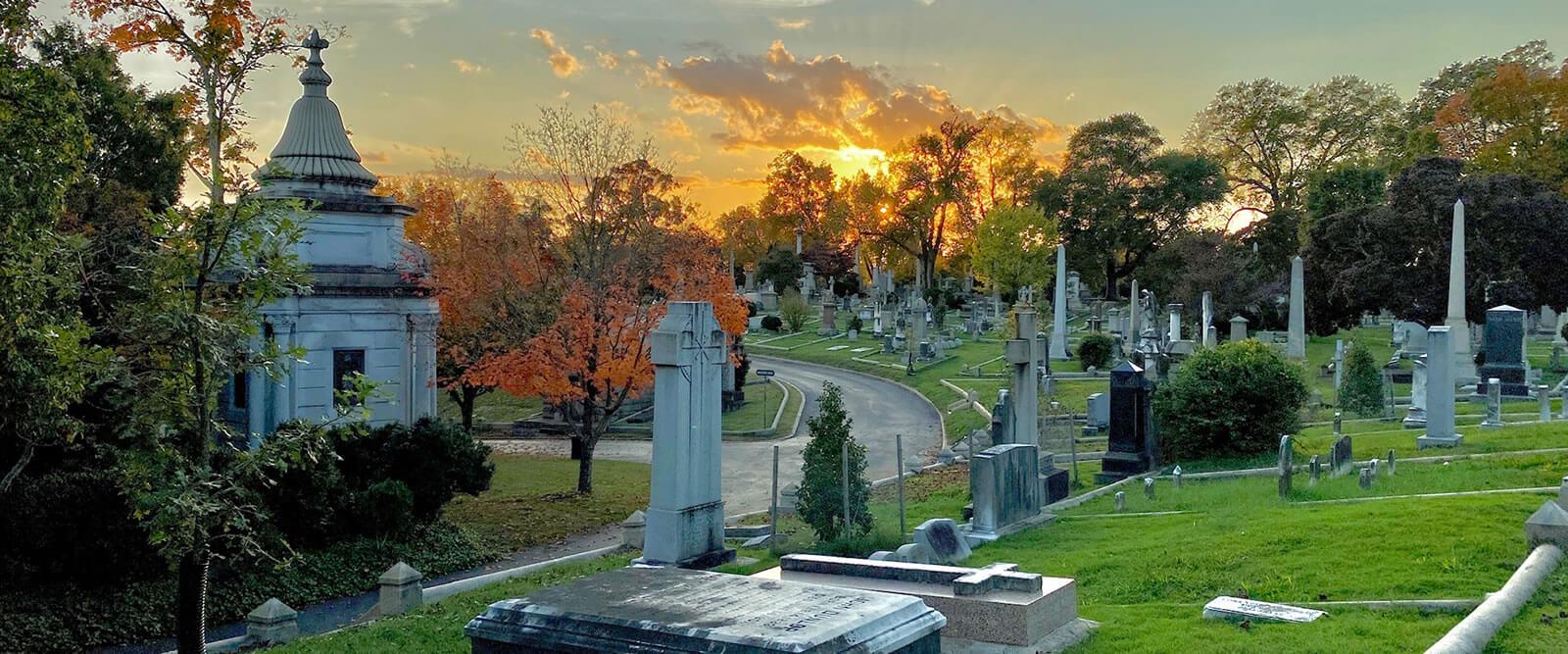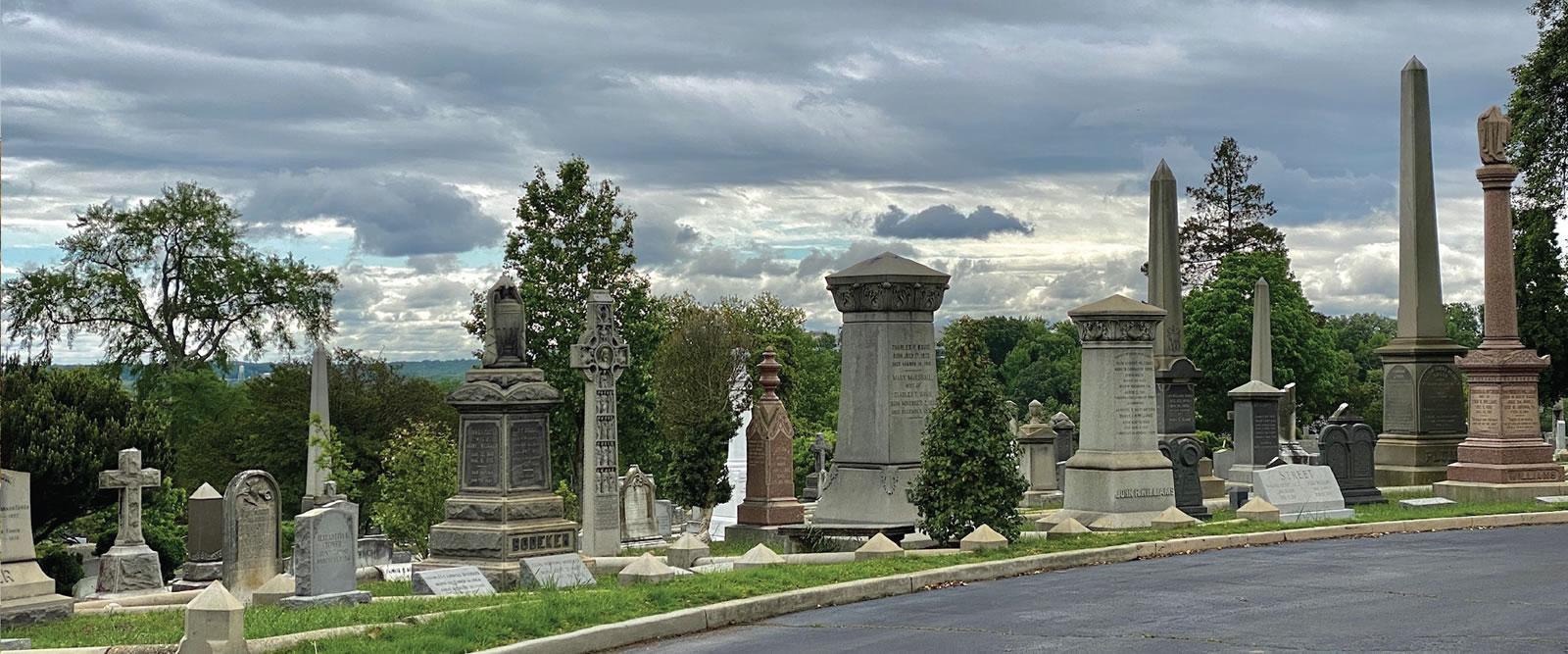
Active Cemetery. National Treasure. Outdoor Museum.
Established in 1847, Hollywood Cemetery is a fully operational cemetery located in Richmond, Virginia. Located on the banks of the James River in the state capital of Virginia, the cemetery spans 135 acres of valleys, hills, and stately trees. Its natural and architecutral beauty sets it apart from the grid-like layout of modern cemeteries and its natural beauty has earned its recognition as a registered arboretum.
Hollywood Cemetery has been a fully operational cemetery since the 19th century. Numerous burial options are available, including lots, cremation niches, and a scattering garden, so you can take your place in history among presidents, generals, authors, and other famous notables.

Burial
Options
Lots
Cremation Niches
Scattering Garden
Lots
Cremation Niches
Scattering Garden

Support the
Cemetery
Donations
Preservation
Planned Giving
Donations
Preservation
Planned Giving

Tour
Hollywood
Self-Guided
Virtual
Group Tours
Richmond's Historic Garden Cemetery
Hollywood Cemetery was designed in 1847 as a “rural” style garden cemetery to escape the grid-like monotony of city cemeteries. Landscape architect, John Notman, specifically left trees and other plants untouched when designing the cemetery's landscape in order to create a peaceful haven for Richmonders. Today, our 135 acres of valleys and hills are covered with heritage roses, stately trees, and other blooms that live up to the name of a garden cemetery. In 2017, Hollywood Cemetery was named a recognized arboretum with the ArbNet Arboretum Accreditation Program.

8am - 5pm Daily
8am - 6pm (during Daylight Saving Time)
Office Hours
Monday - Friday
8:30am - 4:30pm
412 South Cherry Street
Richmond, VA 23220
Phone (804) 648-8501
Fax (804) 644-7345
info@hollywoodcemetery.org
If you don't hear back in a timely manner, please check your spam/junk folder.

Web Design by Addison Clark
Homepage photography courtesy of Bill Draper Photography